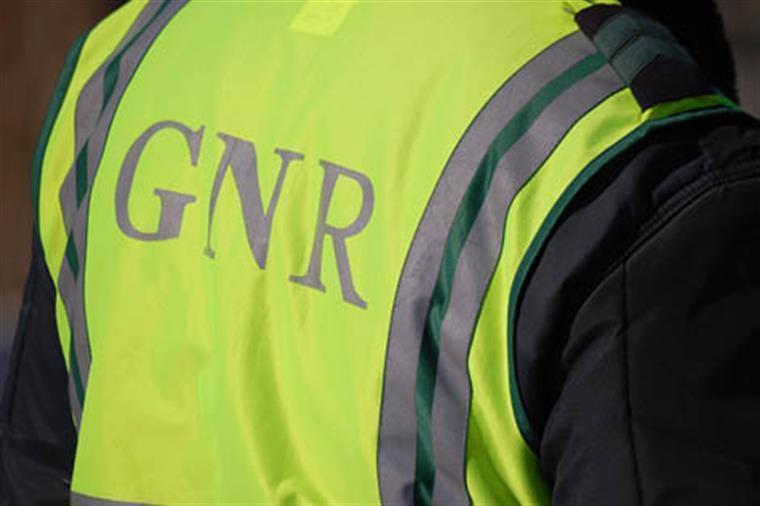« Nice and cheap fly to the sun! » You will no longer see that advertising in the streets of Nijmegen
If you are waiting for the bus in Nijmegen, you will soon no longer see any advertising for flying holidays, cruises or petrol cars. The city council took Wednesday evening a motion To keep fossil advertising out of the public space. To make this possible, the city council asks the Commission to adjust the rules of the public space, the APV. « We want our city to no longer offer a stage to advertising that damages the climate, » says councilor Eline Lauret (Party for the Animals), together with GroenLinks and CDA initiator of the motion.
Because commercials for fossil products or services, says Lauret, « stimulating purchases that make the climate crisis worse. » This ban is explicitly not about forbidding those products, she says, but about making advertising for it. “Flying is legal, just like tanking gas or gas. But the Netherlands and also Nijmegen have agreed the Co2-emission to drastically reduce. Then you have to do that too. «
As long as fossil products are promoted en masse, there is not enough more sustainable. It stops innovation of the sector
In a second motion, the Council asked the municipality to prepare a ban for advertising meat, dairy and eggs from non-biological livestock farming and for fish, because those products also contribute to climate change. « That was the biggest surprise, » says Lauret, « that this motion also received a majority. »
The decision of Nijmegen fits in a broader movement. Earlier, among others, Amsterdam (as the first in the world) and Haarlem decided to keep fossil commercials out of the street scene, by stating in new contracts as a requirement that no more fossil advertisements are shown. The Hague, Utrecht, Delft and now Nijmegen are taking a different approach: by adjusting the APV. In The Hague this led to a lawsuit, brought by travel industry organization ANVR and travel provider TUI. They stated that the ban was contrary to freedom of expression. But the judge equalized the municipality in April: Governments may limit advertising, provided that this is well supported and proportional.
Tobacco manufacturers are not allowed to advertise in the Netherlands. That has an effect
That legal green light is a boost for The Hague and for citizens’ initiative Advertising Fossil -free, which since 2019 has been working for a national ban on fossil advertising. « If you want to get rid of something because it is dangerous, such as fossil fuels, you have to stop promoting them, » says founder Femke Sleegers, who supports local parties, among others, who want to put this subject on the agenda. « That also happened with tobacco. Tobacco manufacturers are not allowed to advertise in the Netherlands. That has an effect. »
Scientists
The call for a ban does not only come from politics or from activist angle. Scientists also warn that fossil advertising has a direct influence on consumer behavior and on how people think about what is normal. So late A recent study in Nature Seeing that local prohibitions of fossil advertising do more than just reduce direct consumption: they change how we think about fossil energy. Limiting advertising, an apparently small measure, can have a major effect. When public opinion tilts, the researchers write, companies and politicians feel faster to make sustainable choices.
People are exposed to hundreds every day, sometimes thousands of advertising messages
A group of Dutch scientists argued in 2023 In an advice to the House of Representatives All that a ban on fossil advertising is essential to initiate and accelerate a sustainable transition. In addition, many more measures are needed, they said.
People are exposed to hundreds, sometimes thousands of advertising messages every day. From bus shelter to supermarket, from Instastory to highway mast. According to research, among others TNOthe Scientific Council for Government Policy (WRR) and the Planning Office for the Living Environment (PBL) these stimuli not only influence individual behavior, but also our joint standards: what we consider as normal, desirable and successful. Advertising that promotes fossil products – such as distant flying holidays or large cars – in this way contributes to maintaining a consumption pattern that, according to scientists, is not sustainable.
« The travel industry plays a major role in this, » says Eke Eijgelaar, researcher Sustainable Tourism at Breda University of Applied Siences. Together with twenty other tourism researchers, he did one public statement to support an advertising ban in The Hague. « Advertising for flight and cruise trips sends behavior in that direction, so that the norm remains. But as long as fossil products are promoted en masse, there is not enough more sustainable. The emission of the travel industry even increases. It stops innovation of the sector. »
Bus shelters
In the Netherlands, the public space is largely in the hands of municipalities. They decide for themselves what is shown on the scenes, bus shelters and advertising columns in their management. There is room for local policy – and that shows. « We suddenly have the wind, » says Sleegers. Whether she finds that remarkable, with a climate -critical government? « It shows how much support there is for climate policy in the Netherlands, » she says. « That is why it should actually be arranged nationally. »
What exactly falls under fossil advertising? That is sometimes the subject of debate, but most definitions are clear: advertising for fossil fuels (such as natural gas), aviation, cruises, gasoline and diesel cars and energy suppliers that are highly dependent on fossil. It also often includes misleading sustainability campaigns from airlines or oil companies. Municipalities are increasingly using a list of sample categories, based on the guidelines of advertising fossil -free.
In the meantime, scientists are preparing a new step. Among them is a petition for a national ban in circulation, addressed to political The Hague, in which they argue for a legal ban on fossil advertising. The moment of submission is not yet known. « You see that more and more municipalities are embracing scientific insights worldwide and are asking for stricter climate policy, » says Sleegers. « Research shows that there is a lot of support in the Netherlands. This is low -hanging fruit. It only needs to be picked. »
Read also
Forbid all advertising in public space, not just the fossil

:format(webp)/s3/static.nrc.nl/images/gn4/stripped/data122159099-8230f5.jpg)
/s3/static.nrc.nl/images/gn4/stripped/data133009876-df9037.jpg|https://images.nrc.nl/vZtZ_bwr09ToJTsc27yhmd_QbMc=/1920x/filters:no_upscale()/s3/static.nrc.nl/images/gn4/stripped/data133009876-df9037.jpg|https://images.nrc.nl/gNCwPlMQKOMyKKvpbALqZ-l0rLE=/5760x/filters:no_upscale()/s3/static.nrc.nl/images/gn4/stripped/data133009876-df9037.jpg)
/s3/static.nrc.nl/images/gn4/stripped/data133007001-3e90e3.jpg)
/s3/static.nrc.nl/images/gn4/stripped/data133007026-70745d.jpg)



